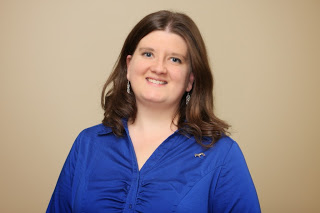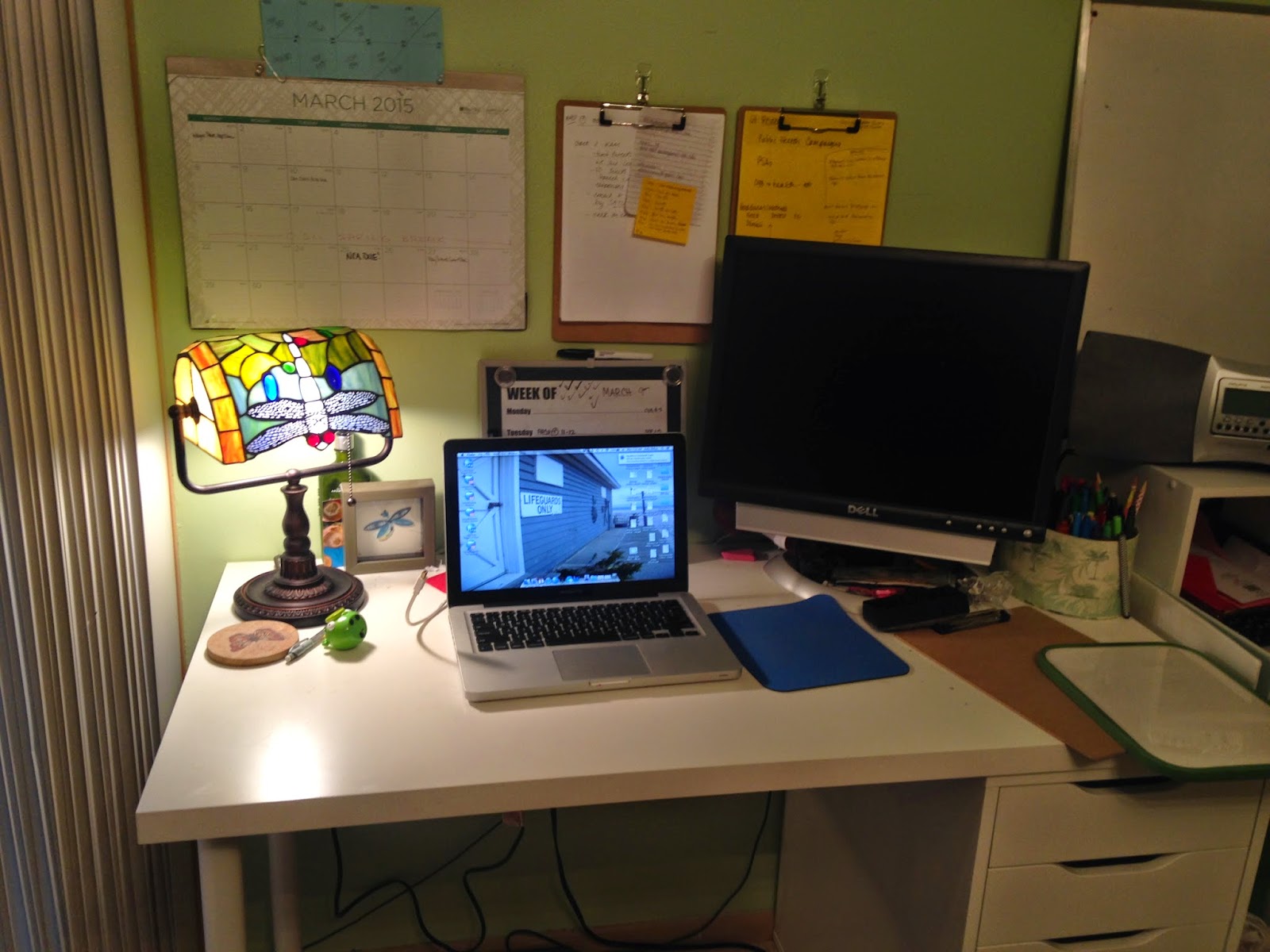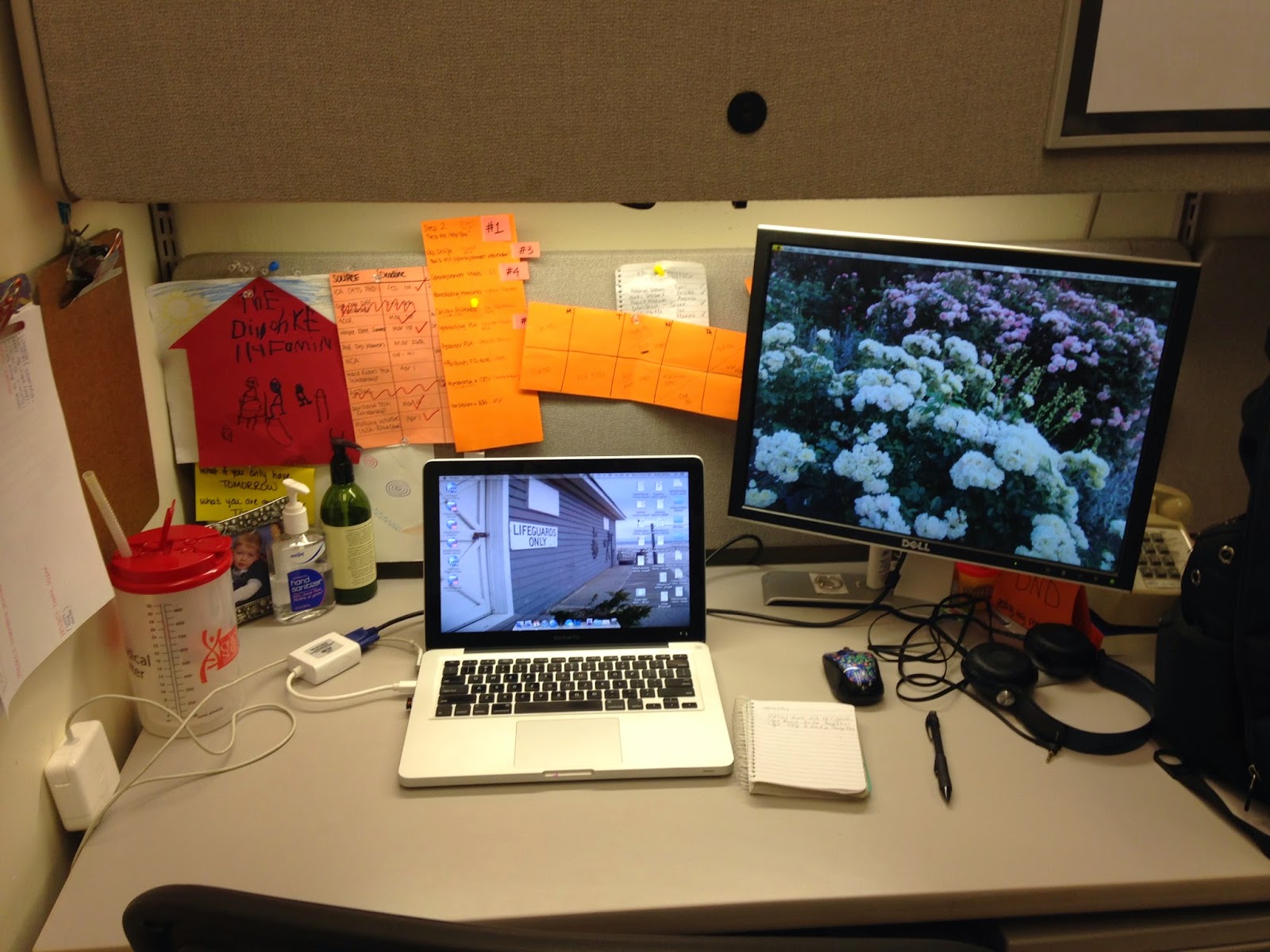I am Kelly Dillon, and this is How I Work
 Today, I’m starting a new series of interviews at PhD Talk, inspired by the “How I Work” series on lifehacker.com. Our first guest is Kelly Dillon. Kelly is a doctoral candidate in the School of Communication at The Ohio State University. She received her BA in Psychology from Kenyon College, an MA in Psychology from Vermont College at the Union Institute and University, and an MA in Communication from The Ohio State University. Ms. Dillon’s research centers on cyberbystander behavior in cyberbullying and cyberharassment contexts under the advisement of Dr. Brad Bushman. She has over a decade of research and grant coordination experience in psychiatric, clinical, special education, biomedical, and higher education research. She lives in Columbus with her husband and two young children.
Today, I’m starting a new series of interviews at PhD Talk, inspired by the “How I Work” series on lifehacker.com. Our first guest is Kelly Dillon. Kelly is a doctoral candidate in the School of Communication at The Ohio State University. She received her BA in Psychology from Kenyon College, an MA in Psychology from Vermont College at the Union Institute and University, and an MA in Communication from The Ohio State University. Ms. Dillon’s research centers on cyberbystander behavior in cyberbullying and cyberharassment contexts under the advisement of Dr. Brad Bushman. She has over a decade of research and grant coordination experience in psychiatric, clinical, special education, biomedical, and higher education research. She lives in Columbus with her husband and two young children.
Current Job: Doctoral Candidate, research assistant (for external project), research assistant (for my advisor for funding), research coordinator (for Federal grant)
Current Location: Columbus, Ohio, USA
Current mobile device: iPhone 5c
Current Computer: MacBook pro
Can you briefly explain your current situation and research to us?
I am currently collecting dissertation data preparing to graduate from the School of Communication at The Ohio State University in Spring 2016. My dissertation and research focuses on cyberbystander behavior in cyberbullying. Specifically I am testing the social impact of various hyper personal affordances online communication gives users. I am trying to experimentally replicate the bystander effect online in a cyberbullying context in real time. My research has been published and recently garnered international and national press. I also manage my advisor’s (Brad Bushman) research laboratory, supervising anywhere between 20-30 undergraduate research assistants on a variety of experiments. Right now I manage Dr. Bushman’s NSF grant examining aggression and media, children and violent media. I have recently joined an Anti-Hate Speech project at Harvard’s Beakman Center for Justice, working remotely to develop qualitative and quantitative means to study online speech that counters hate speech. Finally, I serve as the research coordinator for an NIH post-baccalaureate program, managing data collection, analysis, and human subjects review materials. Prior to starting graduate school I was the program coordinator for this project in the College of Medicine at The Ohio State University.
What tools, apps and software are essential to your workflow?
I rely on technology to keep me on task, to effectively communicate with my research assistants and collaborators, and to get my research done. My dissertation research focuses on online communication, and I use chat rooms for these experiments. I use Qualtrics, an online survey system, to collect all my data, and the data in Dr. Bushman’s projects. We use an online sign-up portal for research participants to schedule their participation in our laboratory. This helps me manage research participant flow, time in the lab, and helps students receive course credit for participation. I use Google hangout, Skype, and online conference calls for many projects with my collaborators. Recently I was a guest lecturer at the University of Georgia via Skype. I rely on cloud services such as Dropbox to help me share files with collaborators and to access my work from anywhere. Social media has become increasingly important as I prepare to enter the job market. It has helped me get word about my research out to important people, organizations, I have found collaborators for conference panels via groups on Facebook, and given my research interests, seeing how others communicate about cyber-aggression online is important. I waited until my second year in my PhD to get my iPad and I wish I had gotten it earlier. I use my iPad for reading anywhere I can: at the gym on the elliptical, waiting for an appointment, while kids are playing outside. I use the application GoodNotes to be able to make notes on readings, then upload to my Dropbox to access anywhere. This app is AMAZING, and allows text, handwritten notes, highlighting, shapes, photos, etc to be added to PDFs. Well worth the $4.99!
I also rely on technology to keep me on task. Currently I use RescueTime, an application that runs in the background of my computer while I use it. It tracks all applications I use, websites I visit, and tells me how much time I spend on productive or distracting tasks. It has helped me figure out when I am most productive, and I try to schedule my writing during that time. The daily/weekly summaries are really helpful, giving me metrics of my productivity. I set rewards for myself if I am 80% or more productive in any given week. Rewards usually involve chocolate, which isn’t good for my diet. 🙂 I use RescueTime in tandem with SelfControl, an application I found for Mac users. It blocks access to certain websites (like Facebook, Twitter, newspapers, etc) you deem distracting. No matter what I do, restart my computer, log in as a different user, I cannot turn off this blocking app until time has expired. This REALLY boosts my productivity. The last piece of technology I use to keep on task is the timer on my cell phone. I set it for 20 minutes to stay on task, and after 20 minutes I get a 5min break to stretch. After 3 20-min blocks, or poms, I get a 10 minute break. Unfortunately a break usually involves some technology (like a goofy internet game, checking Facebook), but I’m trying to get better at that.
One of my most important low-tech technologies for tracking projects is using clipboards! I keep notes, plans, sketches, etc for each project on it’s own clipboard and they travel with me or hang in my offices.
What does your workspace setup look like?
I currently have an at-home office, a small office space with other graduate students in my department’s building, and reserved space for running experiments. I have tried to set up my work so it is quite mobile and my research can be “cash and carry.” All I need is a laptop with internet service and I can get anything done. I have found I am reliant on a second monitor, and have this set-up at home and in my school office. I usually carry around an extra mouse or thumb drive in case wherever I am has neither. Both spaces are fairly public. I share my school office with 6 other graduate students, and sometimes it’s a little crowded and chatty. We tend to have an understanding that if someone has headphones on while working, they wish to not be disturbed. My home office is also my children’s play room, adjacent to the kitchen and backyard. It’s not ideal, but the light is better here and I can try to work while my children are home easier. No matter where I am located or working, music is always on. I have different playlists for different tasks, but I cannot work without music. Thank goodness for streaming services!
What is your best advice for productive academic work?
Have the forest in front of you. Too often we focus on the tree immediately in front of us. I think academics can get too myopic when working on a study. Reminding yourself of the bigger picture, how this study fits in your research program area, discipline, professional growth, personal life, can help when you’re stuck. I also cannot stress enough to get OUT OF YOUR HEAD OCCASIONALLY! I am not ashamed to say I watch trashy reality television. It’s like a cognitive palate cleanser. I get my best ideas in the sauna after a really good cardio workout – when the only thing I could think about was not passing out or falling off the treadmill. When we get out of our head, it’s like a breather for our mind and soul. I’m always more productive with these breaks, not in quantity but quality. Give yourself permission to get out of your head.
How do you keep an overview of projects and tasks?
I use a mixed methods approach, and projects are in different stages: idea formulation, IRB submitted, data collection, data analysis, writing, conference submission, journal submission, DOA. I keep a running tab of projects on a Google docs spreadsheet for one of my advisors to see, organized by stage of project, color coded. This list is also on a piece of paper in my line of sight in my school office with priorities listed. I also use dry erase boards like fish use water. I have two 2m dry erase boards at home, at least 6 smaller ones peppered throughout my various offices, and I actually have one in my backpack. I use these in the short-term for task listing, mind-mapping projects, fleshing out the narrative I’m trying to put together for analysis, etc. I also use a Passion Planner, which is a recent addition to the mix and I love it (it was a Christmas gift). It helps me see my month or week at a glance but gives me some space to reflect, flesh out, play.
Which skill makes you stand out as an academic?
My strongest skill is research coordination. I can maximize efficiency in any project, any experiment, with any group of people. I am really good at multiple moving parts in multiple projects. In part, it comes from 10 years research coordination before returning to graduate school. I know how to write protocols that should I ever get hit by a bus, anyone could pick it up and do my experiments. Having had worked for so many PIs on so many federal grants, I also know how to anticipate problems, formulate contingency plans, and execute them (I also come from a long line of engineers, so contingency plans are just part of my DNA). In just 4 weeks, I have successfully run 30% of the participants I need for my dissertation (n=109). Apparently this is a new record for my department. My research pipeline is full, moving smoothly, and in large part it’s because of my coordination abilities.
What do you listen to when you work?
The task decides the soundtrack. Data analysis is dance/electronic music, anything with a BPM of 140 or greater. AND LOUD! Part of getting out of my head. Writing is typically 80s/90s music, because it’s the stuff I grew up on and is my happy place. Reading is non-lyrical, music only stuff, but not traditional classical. I was a music major for half of my undergraduate, a performer since age 9, so traditional classical music is actually too distracting. I like gregorian chant, new age music if I’m reading. Everyday tasks usually depends on my mood. Right now I’m on an alternative rock and classic rock kick. Makes me nostalgic sometimes.
What are you currently reading?
Ugh. I’m not. Honestly, and I feel tremendously guilty about it. I’m a reader but I can’t stand fiction. The last book I read was The Upside of Down: Why failing well is the key to success. I gobble up any new articles in my area, but lately I’ve been re-reading a lot of the older stuff to get inspired. My research is based on social psychological theories from the 1960s, 1970s and 1980s. I feel they have a lot of application in online settings, so I keep re-reading them. Otherwise, it’s a lot of children’s books like How to Train Your Dragon or some Transformers books (I have two sons, ages 7 and 5).
I don’t find time for reading, unfortunately. It’s not right now a priority, more than writing or analyzing data. I miss reading, and it’s one of the few things I really enjoyed during candidacy exams. Conference season is starting so I’m hoping to pick up a few texts then (when I travel). I typically use my downtime to crochet, which I find helps me get out of my head, feel productive, and gives me something kinetic to do when the house is quiet.
Are you more of an introvert or extrovert? How does this influence your working habits?
Extrovert as the day is long. Sometimes it’s a curse as it makes me interested in almost anything I hear about (RESEARCH ALL THE THINGS!) and I want to collaborate with so many amazing people. It’s a blessing in a way that people want to work with me. I have the lowest turnover in research assistants in my lab because we have a great work environment, I believe I’m approachable, and can read people really well. It also helps at conferences, where I’m not afraid to approach strangers and start conversations.
What’s your sleep routine like?
I’m so glad you asked this, because I’m a complete convert and all I do is lecture our first and second year graduate students on this topic. I’ve only needed about 5hrs of sleep a night since I was a little girl, usually in bed about 1/2am, up around 6 or so (I’m not a coffee drinker either!). It was great during college, when my kids were younger. First year of graduate school nearly killed me, and looking back I can point to my sleep routines, or lack thereof. At least one all-nighter a week, sometimes two. Zombie mommy was grumpy, not making much sense in the lab, and more than a few times I would get lost on my way home. I have since realized I have clinically low blood pressure, an electrical issue in my heart, and a really good marriage that I need to keep healthy. Sleep, apparently, is the magic variable that helps me maintain my sanity, keep my heart palpitations at bay, and my BP from plummeting during the day. I make it my mission, now, to be in bed no later than 11pm since I must get up at 6am to get my children on the bus. My husband and partner works third shift so I can go to school, so typically most family responsibilities at night fall on me. Some days I’m better at that 11p-6a time table, some days not so much. I don’t have any caffeine after 3pm, I get to the gym at least 3 times a week, sometimes more, and I don’t watch TV in my bed anymore. Since I have shifted these habits I’m finally losing weight, my children don’t fight on bedtime any more (good modeling of behaviors I want to see) and I don’t hate going to school so early any more. I’m even an early riser on the weekends without hating it.
What’s the best advice you ever received?
Better is the enemy of good. An engineer my father worked with said this once, and it stuck with me. I don’t know if it’s an American thing, or a western thing or what, but we’re always trying to reinvent, one-up ourselves, constantly making stuff BETTER. But what if it works? What if it’s good? What if that paragraph is just fine the way it is. Better is paralyzing. Better keeps me from sending something to a journal (but it could be better). Better keeps me from finishing the data analysis (but more subjects could make the p value better). Good is good enough. I’m not saying standards should be raised. But raise your standards on whatever you’re doing with purpose. Don’t just raise them to procrastinate, to be better than someone else you are somehow comparing yourself to. Be good.
The second best piece of advice I ever was told was don’t compare your journey to someone else’s finish line. This is especially important for graduate students. I had NO idea the rejection rate for journals (in my discipline, for one of our flagships, the rejection rate was 97% last year. NINETY-SEVEN PERCENT REJECTED). My journey and all it’s bumps, twists, pitfalls, mistakes, hiccups – I can’t compare that to someone else’s finished product. I don’t see all the rejection letters they received. I don’t see all the null results. I only see the gold medal they received. Social comparison is a necessary evil in graduate school and academia. But it doesn’t have to suck all the life or fun out of it. Use it as a motivator, but not as a barometer of your own success (still learning this…).
The final thing I would say, isn’t so much advice, but just a question my father asks me all the time: what’s the worst that could happen? Graduate students tend to catastrophize situations. If I don’t get this article published I won’t get a job. If I don’t get a job, I can’t pay my bills. If I can’t pay my bills, I’ll lose my house. If I lose my house, my kids will grow up in a tiny apartment. If my kids live in a tiny apartment….and so on. All hinging on one journal editor and three random reviewers my kids might be homeless? Stopping this spiral of catastrophic thinking by simply asking what’s the worst that could happen puts things in perspective. So I don’t get published in this journal. So what. There’s hundreds if not thousands of other journals. My literal life and success does not hinge on this publication. Being aware of spiraling thoughts can stop them in their tracks.


